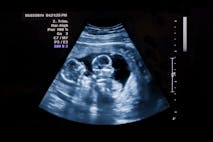
New Archbishop of Canterbury warns of danger in legalizing assisted suicide
Nancy Flanders
·
Judge allows portion of lawsuit challenging Idaho’s pro-life law to continue
A judge has refused to dismiss an abortion industry lawsuit challenging an Idaho law protecting nearly all preborn children from abortion, though he agreed with several of pro-life Attorney General Raul Labrador’s other motions.
According to a statement from Labrador, Judge Jason Scott will allow the lawsuit to move forward, though he dismissed several of the claims included. Scott ruled that Idaho’s pro-life laws do not violate the state Constitution relating to treating pregnant women different from non-pregnant women, nor to a physician’s right to practice medicine. Most of the law will be upheld, though he agreed that the exemptions present should be further clarified.
The lawsuit, Adkins v. the State of Idaho, was filed by the Center for Reproductive Rights on behalf of four women who wanted abortions, but were not able to get them in the state. For all four plaintiffs, the preborn children were diagnosed with disabilities or abnormalities. The Center for Reproductive Rights claimed that, due to the diagnoses of disabilities in the preborn children, the women all were “at risk” of developing conditions like pre-eclampsia and therefore, their lives were in danger. However, there seems to be no indication that any of them were facing actual medical emergencies. And, as Dr. Jeffrey Wright, a maternal-fetal medicine specialist, previously explained to Live Action News, “All pregnancies involve some risk of gestational diabetes and preeclampsia.”
“This is only the beginning of this litigation, but the Attorney General is encouraged by this ruling,” Labrador’s office said in his statement. “He has long held that the named defendants were simply inappropriate, and that our legislatively passed laws do not violate the Idaho Constitution by narrowly limiting abortions or interfering with a doctor’s right to practice medicine.”

In August of 2022, after the fall of Roe v. Wade, the Biden Department of Justice (DOJ) filed a lawsuit challenging Idaho’s law, to which a judge granted an injunction. The DOJ claimed the law is a violation of the Emergency Medical Treatment and Labor Act (EMTALA), requiring hospitals which receive federal Medicare funds to provide stabilizing treatment to patients in the emergency room during a medical emergency. The DOJ argued that this means emergency room doctors will be unable to commit so-called “life-saving” abortions; yet induced abortion — in which a child is intentionally killed — is not a solution to a medical emergency. Early delivery, in which the preborn child is not intentionally killed, is not an induced abortion, and treatments for ectopic pregnancies and miscarriages are also not considered induced abortions. Idaho’s law does allow a preborn child to be intentionally killed if the woman’s life is in danger, or if the child was conceived after rape or incest.
The 9th Circuit Court of Appeals overturned the injunction, to then reinstate a stay one month later until a full judicial appeal can be heard. Labrador responded by asking the Supreme Court to weigh in, and for the law to be allowed to take effect while the courts decide on it.
Live Action News is pro-life news and commentary from a pro-life perspective.
Contact editor@liveaction.org for questions, corrections, or if you are seeking permission to reprint any Live Action News content.
Guest Articles: To submit a guest article to Live Action News, email editor@liveaction.org with an attached Word document of 800-1000 words. Please also attach any photos relevant to your submission if applicable. If your submission is accepted for publication, you will be notified within three weeks. Guest articles are not compensated (see our Open License Agreement). Thank you for your interest in Live Action News!

Nancy Flanders
·
Politics
Nancy Flanders
·
Analysis
Cassy Cooke
·
Abortion Pill
Angeline Tan
·
Politics
Calvin Freiburger
·
Human Interest
Bridget Sielicki
·
Analysis
Cassy Cooke
·
Activism
Cassy Cooke
·
Pop Culture
Cassy Cooke
·
International
Cassy Cooke
·
Analysis
Cassy Cooke
·